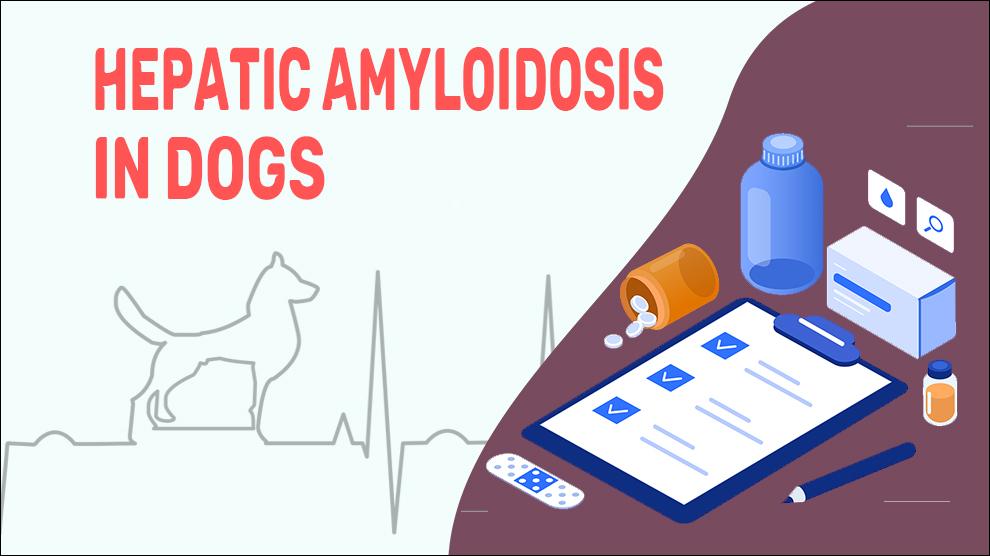Amyloidosis is a pathological development that includes a group of rare, serious conditions resulting from the intracellular deposition and/or extracellular deposition of abnormal fibrillar amyloidogenic proteins, which can involve any organ in conjunction with other organs or in isolation. The aggregates of misfolded proteins can do so in the form of an infiltrative process or focal, tumor-like lesions.
Hepatic amyloidosis (HA) is typically differentiated by amyloid deposits along the sinusoids in the liver parenchyma within the blood vessel walls or inside the spaces of dissent. As the amyloid deposits severely compress the hepatocytes, there may be atrophy of hepatocytes or they may nearly disappear. More massive infiltration happens in advanced cases resulting in enlargement of the liver with an elastic, rubbery consistency. In most cases on the cut surface, there will be a “lardaceous liver” appearance.
The hepatic amyloidosis clinical spectrum can range from borderline abnormal liver function test and hepatomegaly to more severe form resulting in hepatic failure, portal hypertension, and sometimes, spontaneous rupture.
Around 70% - 80% of the cases have been associated with congestive cardiac failure, peripheral neuropathy or orthostatic hypotension, and nephrotic syndrome.
Symptoms Of Hepatic Amyloidosis
Treatment Options For Hepatic Amyloidosis
There is no specific treatment available for hepatitis amyloidosis in dogs.
- Immediate hospitalization and close monitoring are required, if not treated immediately, will cause death.
- Intravenous fluid and nutritional therapy will be given to help your dog not become severely dehydrated.
- Your vet keeps your dog hydrated and only treats the symptoms while the condition runs its course.
- Immunosuppressive or anti-inflammatory medications.
- Anti-diarrhea medications.
- A broad-spectrum antibiotic for any secondary bacterial infections.
Home Remedies For Hepatic Amyloidosis
- Evaluate the severity of the condition, examine your dog's bowel movements and check whether the things escalate or clear up.
- Better visit the vet clinic immediately if your pet has frequent bouts of diarrhea in a short time period.
- When you see visible signs of liver disease in your dogs, it’s clear that the condition has progressed to a developed stage.
- A definitive diagnosis can be done by taking a liver biopsy to determine the type and severity of the liver disease.
Prevention Of Hepatic Amyloidosis
- Protect your dog from infections, ingestion of toxins, and hyperacidity.
- Don’t skip monthly vet visits and check for metabolic diseases.
- Feed high-quality food and exercise regularly.
Affected Breeds Of Hepatic Amyloidosis
Additional Facts For Hepatic Amyloidosis
- Causes:
The HA etiology is not understood properly. Indeed, it appears to have several causes.
However, possible causes include:
- Genetics - Shar-Pei Fever Syndrome, and Cyclic Neutropenia or Gray Collie Syndrome.
- Malignant tumors, plasma cell tumors (myelomas).
- Chronic inflammatory diseases.
- Chronic bacterial infections.
- Types:
Hereditary: Protein mutations are transmitted hereditarily.
- Chinese Shar-Peis - Shar-Pei Fever Syndrome.
- Akitas - Multiple joint inflammations and cyclic fever.
- Collies: Gray Collie Syndrome or Cyclic Neutropenia.
Acquired:
- Plasma cell tumors or myelomas.
- Chronic inflammatory diseases.
- Chronic bacterial infections.
- Malignant tumors.
- Senile
- Old dogs have Mild and asymptomatic amyloid formations.
- Usually, this doesn’t affect the dog’s health.
- Mortality:
HA median survival without treatment is only 10 months. Congestive cardiac failure has the worst prognosis and results in death about 2 months after the onset of hepatic amyloidosis.
- Diagnosis:
- A complete blood count (CBC).
- Urinalysis
- Serum biochemistry profile.
- X-rays
- Ultrasound, CT scan
- Prognosis:
Approximately 75% of liver cells should fail for the liver failure signs to be apparent. The prognosis is poor for liver cirrhosis. The damage caused by most acute liver failures can be reversible. However, acute liver failure can be deadly as within 5 to 7 days after the onset of clinical signs, the dog may die.
When To See A Vet
Contact your vet right away, if you notice any of the following:
- Chronic diarrhea
- Chronic vomiting
Food Suggestions For Hepatic Amyloidosis
- Lean Protein and Low-fat meats (ratio of omega-6 to omega-3 fats = 5:1).
- White Rice, Boiled boneless, Skinless chicken breast meat.
- Probiotics (yogurt, Goat's Milk, fermented vegetables, kefir with live cultures).
- Potatoes and Pumpkin (canned or pureed).
- Mashed boiled potatoes, and carrots.
- Bananas, Apples, Seaweed.
Conclusion
The stage or severity of the disease determines the prognosis. Progression of dogs through every stage of liver failure reduces the survival time of dogs. Regular health checks are recommended to ensure there are no secondary infections. Strictly follow the veterinarian's recommendations of any therapeutic diet or nutritional supplements to manage the condition.

















